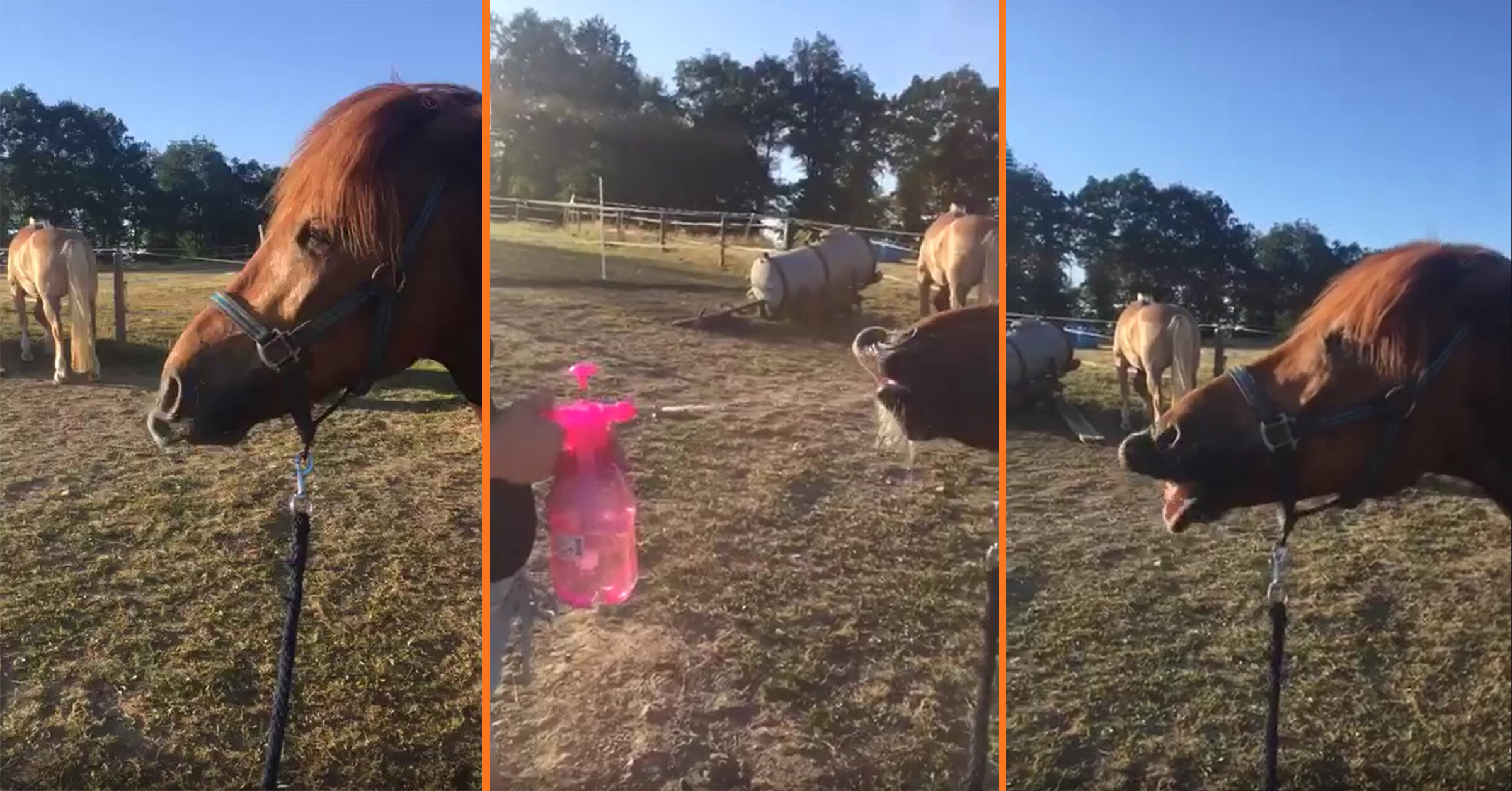Horses have very distinct personalities, and most owners have at least one story about their equine counterpart doing something silly to keep himself entertained. This horse, for example, is drinking water so funnily, that you can’t help but laugh or at least smile while watching it.

Though people tend to apply human emotions to their horse’s actions, equine behavior experts have determined that horses often do exhibit actions humans would characterize as funny. Horses come by some of these behaviors naturally, while they pick up others by interacting with humans. No matter how the horse learned it, handlers should remember to respond accordingly.
Horses exhibit “playful” behaviors throughout their lives. For example, young males engage in mock fights and play “tag” as they learn the physical and social skills they will need to survive in the wild. Mares may run to incite stampedes and buck imaginary predators off their backs. But geldings tend to be funnier than mares.

Horses can demand attention from their handlers by pawing, kicking, or trying to bite. Humans may accidentally reinforce these behaviors by feeding treats to the animal to placate them. The problem arises when the horse feels the handler has not responded quickly enough or in the “correct” manner – he could get aggressive to get his desired response.
But there is a fine line between a playful joke from a horse and an overly aggressive animal created by his owner rewarding the same behavior, Ralston warns. Owners and handlers must decide which behaviors they are willing to tolerate and which are absolutely unacceptable.
In our video, the horse looks like it’s laughing while drinking the water. But, little did we know, when horses look like they’re laughing, they’re actually engaging in a special nose-enhancing technique known as “flehmen,” to determine whether a smell is good or bad.
